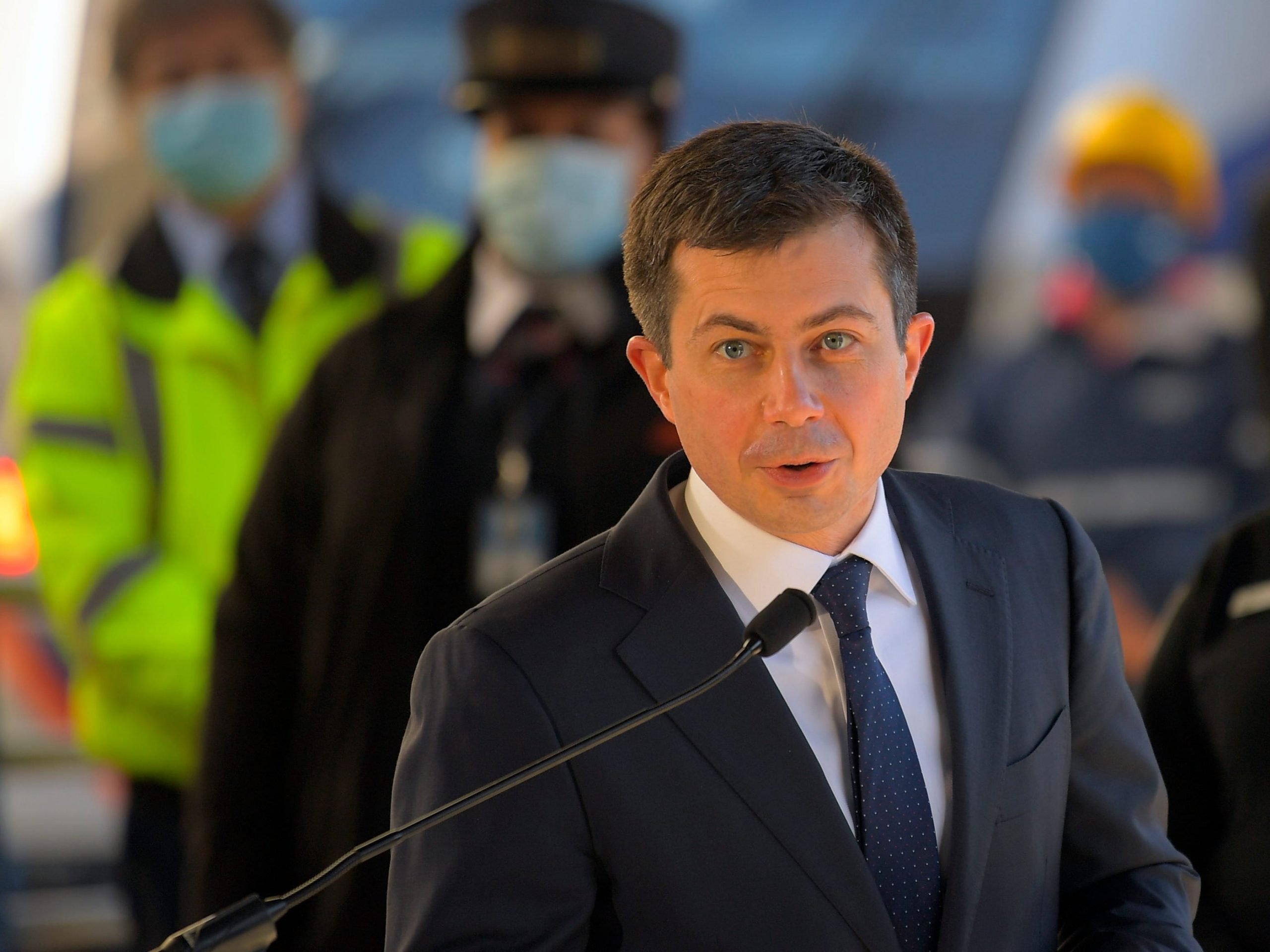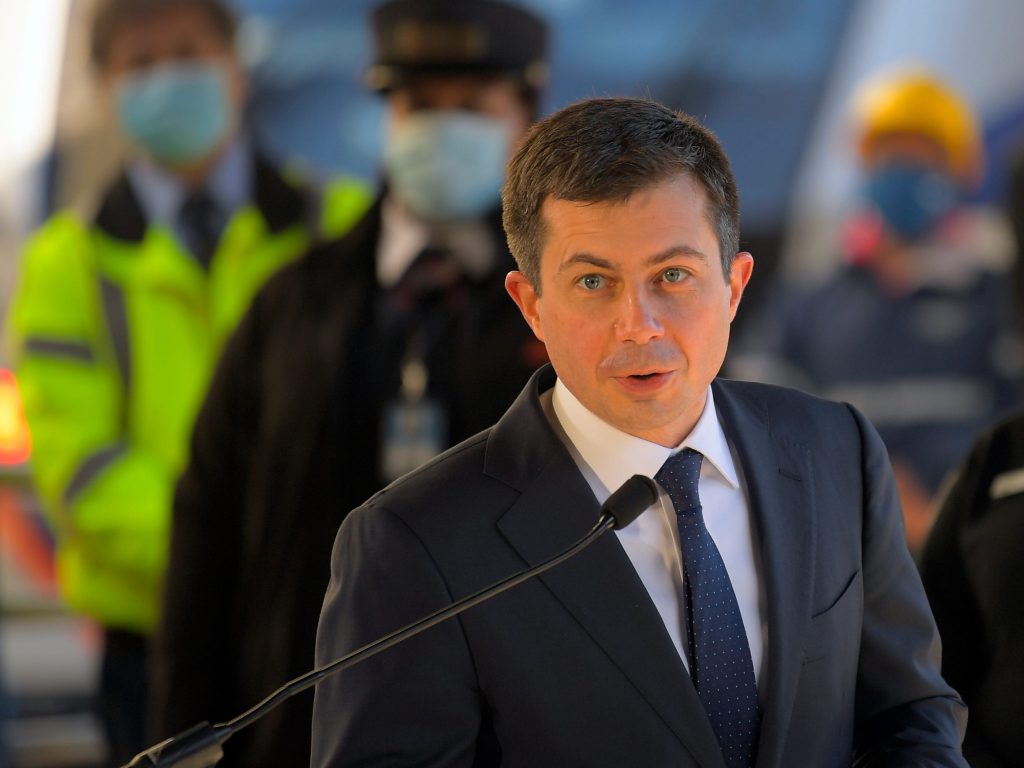
John McDonnell/The Washington Post via Getty Images
- Pete Buttigieg said on Sunday the US needs to tackle COVID in order to solve supply chain issues.
- The pandemic hangs over supply bottlenecks and rising inflation ahead of a high-demand holiday season.
- Buttigieg said shippers and retailers are operating in an "outdated" supply chain infrastructure.
Though the federal government and private companies have both tried to find solutions to the supply chain crisis, bottlenecks and inflation aren't going away, says the Biden Administration – at least while COVID-19 is still around.
According to Transportation Secretary Pete Buttigieg, the supply chain crisis is the result of myriad factors tied directly to the ongoing pandemic. Speaking on a circuit of morning shows on Sunday, Buttigieg touted the Biden Administration's budget reconciliation bill in combatting inflation and supply chain stressors as it continues to battle COVID-19.
The US continues to deal with rising inflation, which the Biden Administration says has lasted longer than they have anticipated. Leaders at the G-20 summit in Rome overturned Trump-era tariffs on aluminum and steel on Saturday, hoping to normalize cost increases the tariffs have led to in the years since.
"Look, there are so many things that are still happening in our economy – distortions, disruptions, things in our supply chain that are affecting prices that are clearly a direct consequence of the pandemic," Buttigieg told "Fox News Sunday" host Chris Wallace. "Which is why the best thing we can do for our economy in the short term, and to deal with these transitory issues, is to put the pandemic behind us."
Buttigieg cited three main factors compounding supply chains, including "off-the-chart" demand, limited supply, and the COVID pandemic, which is "poking holes in supply no matter how good any company or any administration is."
"We are going to continue to see challenges. The steps we're taking are making a difference, but think about all the things that have to happen to get a product to a shelf on time," Buttigieg said in an interview with CNN's Dana White. "Fundamentally it's up to the producers the shippers and the retailers and we're doing everything we can to help them move those goods across the infrastructure that's often outdated."
In his interview with Wallace, Buttigieg also praised the "phenomenal work" of port officials and workers in combatting supply chain disruptions, though he also warned that the US west coast could still feel the impacts of supply chain delays this fall, referring to the closure of a major Chinese port from this summer.
Supply chain issues have been a source of worry for many major manufacturers and retailers, especially as the holiday season approaches. Port and freight companies have struggled to adjust their logistics operations around multiple factors, like labor shortages, transportation delays, diminished warehouse capacities, and port congestions.
While President Biden announced earlier this month that the Ports of Long Beach and Los Angeles would move to a 24/7 operation schedule in an attempt to ease supply chain constraints ahead of the holiday season, ports have continued to see an increase in waiting containers and unused trucker appointments.

